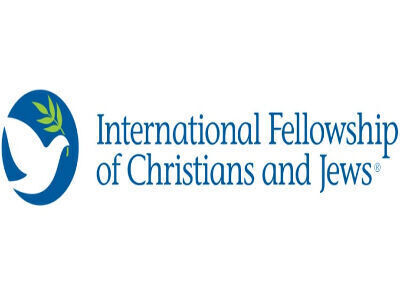In historic move, UK recognizes a Palestinian state despite opposition from US and Israel
News > Top Stories

Audio By Carbonatix
4:21 AM on Sunday, September 21
By PAN PYLAS
LONDON (AP) — British Prime Minister Keir Starmer says the U.K. is formally recognizing a Palestinian state despite vociferous opposition from the U.S. and Israel.
In a statement Sunday, Starmer said the move is part of a process to bring about an end to the conflict in Gaza and help promote a lasting peace between Israel and the Palestinians.
Though the move is largely symbolic, it is a historic moment as the U.K. arguably laid the groundwork for the creation of the Israeli state when it was in control of what was then known as Palestine in 1917.
The announcement was widely anticipated after Starmer said in July that the U.K. would recognize a Palestinian state unless Israel agreed to a ceasefire in Gaza, allowed the U.N. to bring in aid and took other steps toward long-term peace.
The U.K. is not alone in recognizing a Palestinian state. More than 140 countries have already taken that step and more are expected to do so at the U.N. General Assembly this week, including Australia, Canada and France. Portugal is also expected to do so later Sunday.
THIS IS A BREAKING NEWS UPDATE. AP’s earlier story follows below.
LONDON (AP) — The U.K. is expected to recognize a Palestinian state later Sunday despite opposition from the U.S., after judging that Israel has not met conditions it set over the war in Gaza.
Though the anticipated move is largely symbolic, the U.K. hopes that it could increase diplomatic pressure for an end to the conflict in Gaza as well as help pave the way for a long-lasting peace based on two states living side-by-side.
Deputy Prime Minister David Lammy, who was foreign secretary until earlier this month, said an announcement on the recognition of a Palestinian state will come later Sunday from Prime Minister Keir Starmer.
“Any decision to recognise a Palestinian state, if that were to take place later on today, does not make a Palestinian state happen overnight," he told Sky News.
He suggested that recognition would help keep the prospect of a two-state solution alive, and stressed that identifying the Palestinian people with Hamas was a false narrative.
In July, in the wake of intense pressure within his governing Labour Party, Prime Minister Keir Starmer said the U.K. would recognize a Palestinian state unless Israel agreed to a ceasefire in Gaza, allowed the U.N. to bring in aid and took other steps toward long-term peace.
The anticipated move comes ahead of the U.N. General Assembly this week, where other nations, including Australia, Canada and France, are also readying to recognize a Palestinian state. Portugal is expected to do so later Sunday.
More than 140 countries have already taken the step to recognize a Palestinian state, but the decisions by France and Britain are significant as they are both members of the Group of Seven and the U.N. Security Council.
The U.K.’s expected recognition of a Palestinian state comes just days after a state visit from U.S. President Donald Trump, during which he voiced his disapproval of the plan.
“I have a disagreement with the prime minister on that score,” Trump said.
Critics, including the U.S. and the Israeli government, which has shown no interest in a two-state solution, have condemned the plans, saying it rewards Hamas and terrorism. As well as arguing that recognition is immoral, critics argue that it's an empty gesture given that the Palestinian people are divided into two territories — the West Bank and Gaza — with no recognized international capital.
Starmer has insisted that Hamas will have no role in the future of the governance of the Palestinian people and must release the Israeli hostages it still holds from the attacks on Oct. 7, 2023.
France and the U.K. have a historic role in the politics of the Middle East over the past 100 years, having carved up the region following the defeat of the Ottoman Empire in World War I.
As part of that carve-up, the U.K. became the governing power of what was then Palestine. It was also author of the 1917 Balfour Declaration, which backed the establishment of a “national home for the Jewish people.”
However, the second part of the declaration has been largely neglected over the decades. It noted “that nothing shall be done, nothing which may prejudice the civil and religious rights” of the Palestinian people.
Lammy, who will represent the U.K. at the U.N. this week, said in July that this had not been upheld and represented “a historical injustice which continues to unfold.”
The Palestinian head of mission in the U.K. Husam Zomlot told the BBC that recognition would right a colonial-era wrong.
“The issue today is ending the denial of our existence that started 108 years ago, in 1917,” he said. “And I think today, the British people should celebrate a day when history is being corrected, when wrongs are being righted, when recognition of the wrongs of the past are beginning to be corrected."
The U.K. has for decades supported an independent Palestinian state alongside Israel, but insisted recognition must come as part of a peace plan to achieve a two-state solution.
However, the government has become increasingly worried that such a solution is becoming all but impossible – not only because of the razing of Gaza and displacement of most of its population during nearly two years of conflict, but because Israel’s government is aggressively expanding settlements in the West Bank, land Palestinians want for their future state. Much of the world regards Israel’s occupation of the West Bank, which is ostensibly run by the Palestinian Authority, as illegal.
“We are working to reform the Palestinian Authority, and we have to keep two states alive for the children of both Gaza and the West Bank and East Jerusalem," said Lammy.









